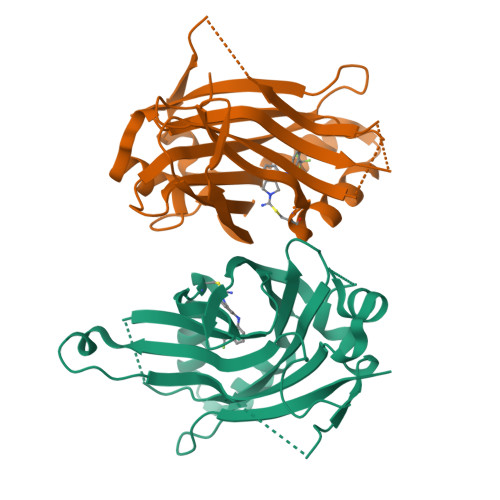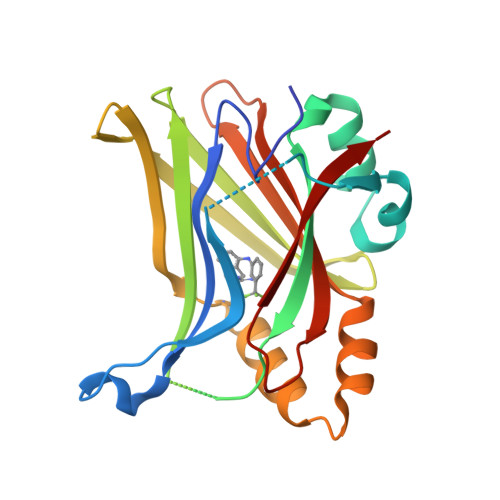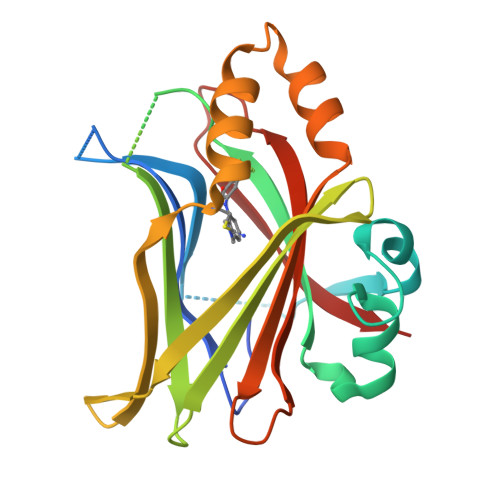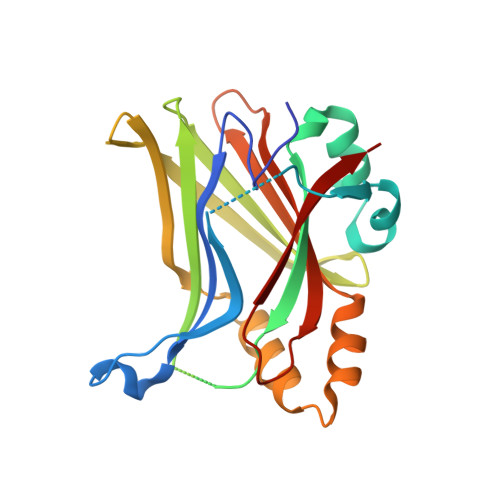Small-Molecule Cyanamide Pan-TEAD·YAP1 Covalent Antagonists.
Bum-Erdene, K., Yeh, I.J., Gonzalez-Gutierrez, G., Ghozayel, M.K., Pollok, K., Meroueh, S.O.(2023) J Med Chem 66: 266-284
- PubMed: 36562717
- DOI: https://doi.org/10.1021/acs.jmedchem.2c01189
- Primary Citation of Related Structures:
7T2J, 7T2K, 7T2L, 7T2M - PubMed Abstract:
Transcriptional enhanced associate domains (TEADs) are transcription factors that bind to cotranscriptional activators like the yes-associated protein (YAP) or its paralog transcriptional coactivator with a PDZ-binding motif (TAZ). TEAD·YAP/TAZ target genes are involved in tissue and immune homeostasis, organ size control, tumor growth, and metastasis. Here, we report isoindoline and octahydroisoindole small molecules with a cyanamide electrophile that forms a covalent bond with a conserved cysteine in the TEAD palmitate-binding cavity. Time- and concentration-dependent studies against TEAD1-4 yielded second-order rate constants k inact / K I greater than 100 M -1 s -1 . Compounds inhibited YAP1 binding to TEADs with submicromolar IC 50 values. Cocrystal structures with TEAD2 enabled structure-activity relationship studies. In mammalian cells, compounds suppressed CTGF mRNA levels and inhibited TEAD1-4 transcriptional activity with submicromolar IC 50 values. Inhibition of TEAD binding to YAP1 in mammalian cells was also observed. Several compounds inhibited the cell viability of sarcoma, hepatocellular carcinoma, glioblastoma, and breast cancer cells with single-digit micromolar IC 50 values.
Organizational Affiliation:
Department of Biochemistry and Molecular Biology, Indiana University School of Medicine, Indianapolis, Indiana 46202, United States.


















